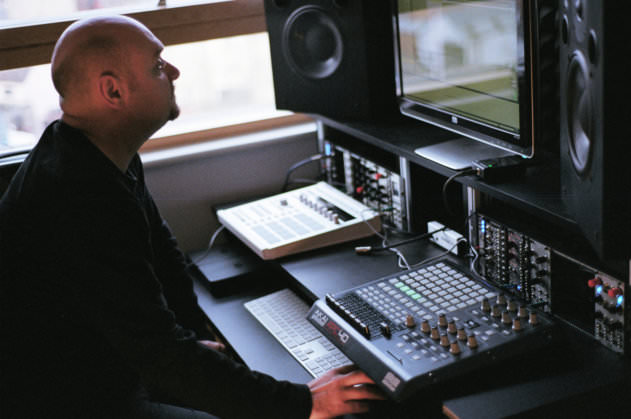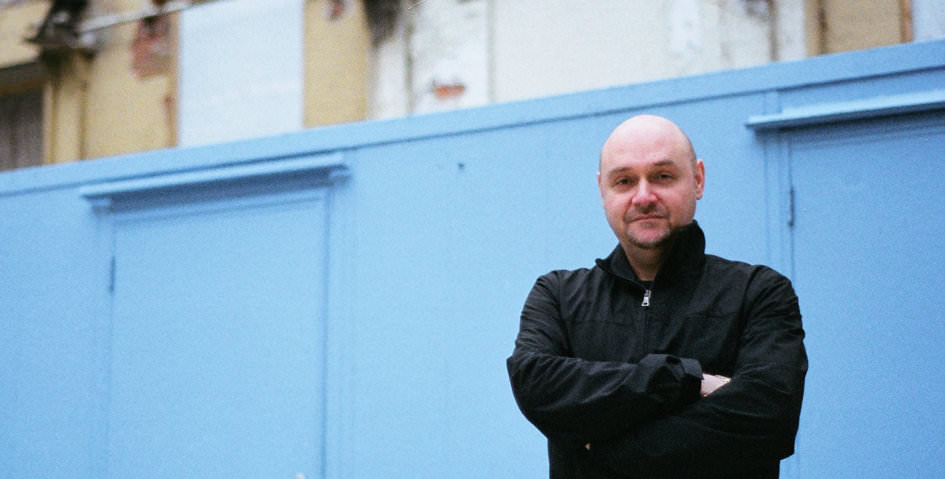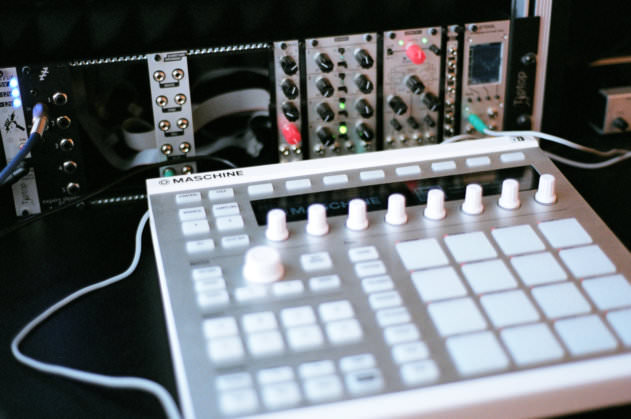
It’s interesting that you were directly connected to that scene, because that really wasn’t the case for a lot of producers in the UK at that time. That disconnect was probably the motivation for a lot of British producers, but you were personally involved with Detroit. How did that first come about?
I was a record collector and I used to buy for Reckless Records, so when I was in America I just went there and met up with them. I felt a part of them. Me and Carl would be sending each other new music and releasing each other’s music. I had a lot of Derrick May’s old studio equipment, so I felt part of it.
There was famously a lot of sharing of equipment going on in the early days, although presumably it’s a little bit later when you went over there?
Yeah, it was 1990. What happened in my case is I went to see Inner City play live in 1989, around the time ‘Good Life’ and ‘Big Fun’ were huge hits. I was wearing a Transmat t-shirt and this guy came up to me and said, ‘Where did you get that t-shirt?’ I recognised him as Derrick May and we just got chatting. I said I was going to be over in Chicago buying records for the shop and he said I should come to Detroit if I had time.
So I went there and met a British guy working for Transmat – Matt Cogger, who used to do music under the name Neuropolitique – and as part of payment Derrick used to give him equipment. When it was time for Matt to come back to England he brought it all with him, so we used to share a Kawai K3, Derrick’s DX100 and I think we had one of Derrick’s reel-to-reels at one point. That’s how we started making music.
There are a lot of myths and legends about the gear those guys were using at the time and the various pieces which got passed around producers in Detroit and Chicago. Was it Kevin Saunderson or Juan Atkins who apparently had the modified DX100 with an analogue filter from an Oberheim synth? Did you see anything like that?
Derrick’s was definitely just standard, but one thing I do know is that his 808 sounded different to any other 808 I’ve ever heard – he said he’d opened it up and adjusted a few trimpots. I used it on ‘Meridian’ and you can hear it on that – the snare sounds really snappy, unlike any other 808.
I got to see Metroplex Studio in 1990 and pretty much all Juan’s music was based on the Pro-One. Those classic arpeggiated synth lines on all the Model 500 stuff are all Pro-One. That’s quite an important, often overlooked keyboard in the history of techno, actually.
Did you pick up tips on making music as well as gear?
No, they would never do that.
Really?
Oh yeah. It’s funny – Derrick’s often said that he’s mentored guys like myself and Carl Craig but he never ever showed you how to do anything. It was all very cryptic sort of advice. ‘Make sure your tracks have a beginning, a middle and an end.’ Things like that. He would never ever sit down and say, ‘This is how you program something.’ I think he did teach Matt Cogger how to tape edit, splicing and that sort of stuff, because Matt showed me, but he’d never give you any help. It had to be hard-won with him, and that’s the way it should be.
Derrick gave very cryptic advice. 'Make sure your tracks have a beginning, a middle and an end.' Things like that.
When did you actually start making music? Were you doing anything before you went to Detroit?
No, it was 1990. I came back from Detroit, sold my record collection, got a few grand together and bought an Akai S950 sampler, a Roland D-5 as a master keyboard, a DAT machine, a Roland R-5, which was their latest drum machine at the time, and an Atari 1040 with Opcode Vision. So I had pretty good gear to start with and I locked myself away for six months to read manuals and teach myself.
Was it something you’d wanted to do before then?
No, not at all. It was just looking at Derrick’s setup in Transmat and the Metroplex studio and thinking, ‘How much did this gear cost? Four or five grand? That’s doable if I sell all my records…’
So you had absolutely no musical leanings before then?
No. I had that conversation with Matt Cogger. I asked him if he could read music or anything and he said, ‘No, this is all about programming.’
I guess the other influence was just before I went to Detroit, from a couple of old mates from when I was at school, Ed and Andy, the guys from Plaid. They used to breakdance in Ipswich when I was an electro DJ and they came into Reckless Records and said, ‘We’ve just moved to London and we’re making a bit of music. Do you want to come in and add some ideas and stuff?’ So I went into Black Dog Towers, the studio, and again it was a very minimal setup – Atari, Matrix 1000, 808, Fostex mixer – and they said, ‘Go on then, just program some drums.’ They couldn’t really read music either so that was an even bigger influence on me, seeing those guys do it.


07.22 PM
His aunt outgrew “clubbing” at the age of seventeen?
08.38 PM
Great interview.
10.47 AM
Great inteview as always, keep ’em coming.
09.09 AM
That ma man Atjazz